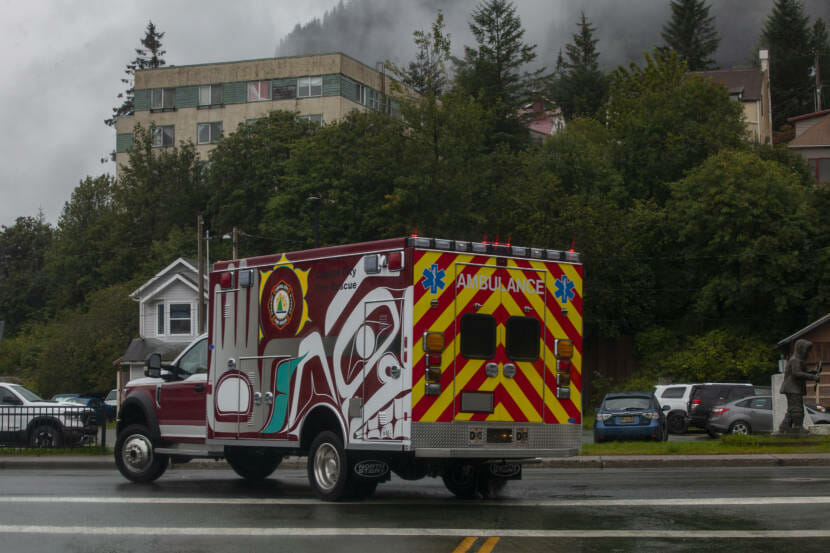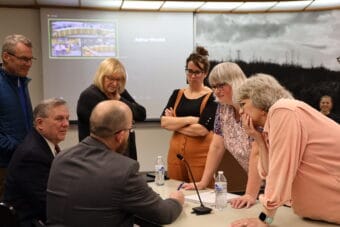
The Juneau Assembly has given its first round of approval for budgets to keep a proactive medical service going for another year and to subsidize child care businesses.
Capital City Fire/Rescue runs the medical service called CARES. It’s short for Community Assistance Response and Emergency Services. It started two years ago when CCFR took over a sleep-off service for intoxicated people that Bartlett Regional Hospital had run.
In response to COVID-19 last year, they started providing more general care and follow-up care in the field to reduce emergency room visits for non-emergency issues.
CCFR Chief Rich Etheridge told the Assembly it’s one of the most exciting programs he’s seen after almost 30 years in fire service.
“This is the first opportunity where we’re able to get proactive and head off problems for not just our agency, but other agencies and community members,” Etheridge said. “And get people the best level of care, and find out the root cause of why they’re needing these emergency services.”
This type of service is sometimes called a community health program or community paramedicine.
Etheridge said these teams often help manage psychiatric issues in the field. For example, he said one paramedic actively seeks out a particular person to administer medication to.
“So that they aren’t having to fight with the police department when the 911 call comes in, and we don’t have to transport them, and then they have to spend time at the hospital,” he said.
In general, Etheridge said of the team members, “They’re really good at de-escalating very agitated people that we meet on the streets and wake up. Overall, they’re kind of that stopgap that fills in holes in the EMS and the mental health system here in town.”
Assembly member Maria Gladziszewski said the approach is great and fits in with bigger conversations around policing.
Etheridge said they have also helped families with end-of-life care before they can get hospice care. That’s meant helping manage pain, or teaching families how to clear their loved one’s airways.
The Assembly Finance Committee approved $496,600 for the program, to be paid for with $321,600 from the general fund and $175,000 from alcohol taxes.
The committee also approved $625,000 for child care programs. Some of that is for training programs for child care workers. Most of it is for subsidies to child care providers, intended to make the economics of running a child care business in Juneau more feasible.
Joy Lyon is the executive director of the Southeast Alaska Association for the Education of Young Children. She shared some highlights that the funding made possible over the last year.
“We only lost one child care who never reopened this past year,” she said. “But other than that they all opened, and actually, three new child care programs opened during this pandemic. So, I think that is pretty remarkable.”
The Assembly’s decisions on these programs are not final. The Assembly plans to hold a public hearing and adopt the city’s overall spending plan and property tax rates for the upcoming fiscal year at its regular meeting on June 14.



